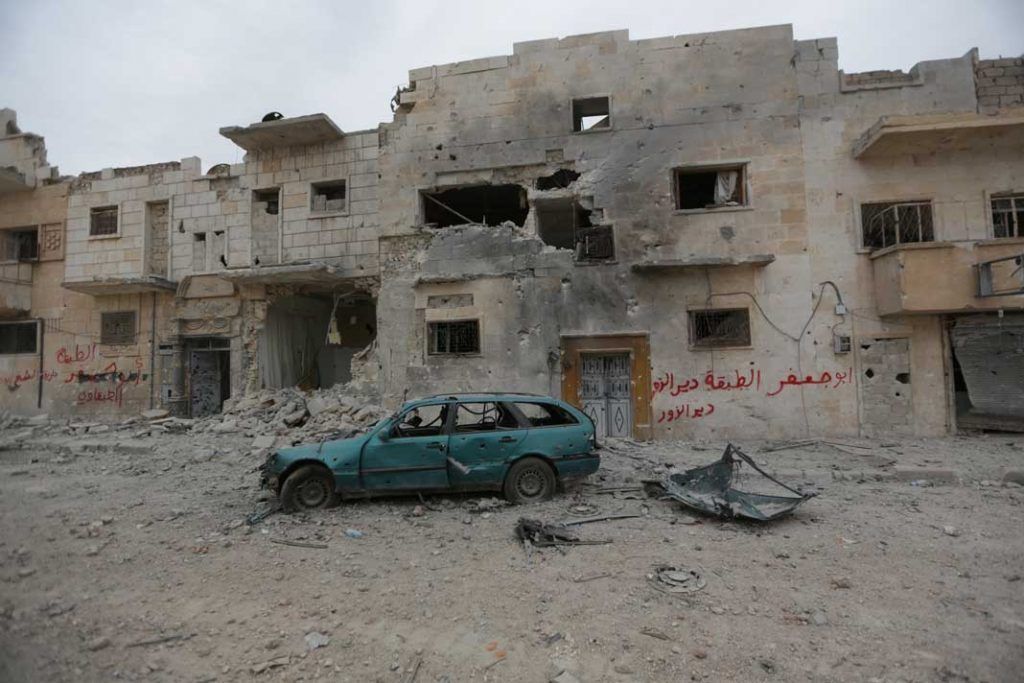March 02, 2017
Peyman Pejman
A United Nations investigative commission, in one of the harshest reports issued so far by the international body, has accused both the regime of Syrian President Bashar al-Assad and the rebel groups fighting the Damascus government of “war crimes.”
The report acknowledges the role and presence of Iranian and Russian forces in the war theater, but does not cite them culpable in “war crimes” charges.
The U.N. Security Council established the Independent International Commission of Inquiry on the Syrian Arab Republic last year to “conduct a comprehensive, independent special inquiry into the events in Aleppo, to, where possible, identify all those for whom there were reasonable grounds to believe that they were responsible for alleged violations and abuses of international human rights law.”

Reuters©
The northern city of Aleppo was witness to some of the most gruesome warfare in Syria’s six-year civil conflict until it fell to the government last December.
“Parties to the battle for Aleppo committed serious violations of international human rights law and international humanitarian law amounting to war crimes,” said the 37-page report published Wednesday.
The Syrian government did not cooperate with the investigation and has not yet commented on the report. Its ally Russia, on the other hand, used its veto power at the U.N. Security Council Tuesday to once again put a stop on a resolution that would have imposed sanctions on the Syrian government for alleged use of chemical weapons during the past six years of war.
The two most striking accusations in the report center on attacks against U.N. aid convoys last September, and on the forced evacuation of civilians from Aleppo.
The report by the U.N. High Commissioner for Human Rights said the Syrian government deliberately targeted the 31-truck aid convoy last September during which more than a dozen aid workers and civilians were killed.
The attacks were “meticulously planned and ruthlessly carried out,” said the report, even though the Assad regime had approved the aid delivery to Urum al-Kubra, west of Aleppo. Much of the convoy was destroyed, sending shockwaves throughout the international aid system. A previous investigation ordered by the former U.N. Secretary-General Ban Ki-moon did not assign direct blame to the Assad regime.
The U.N. report on Wednesday said the Syrian regime helicopters first dropped barrel bombs on the convoy, then regime jets fired rockets at the trucks, finally to followed by machine-gun attacks against fleeing civilians.
The attacks, said the report, were “one of the most egregious” war crimes the Assad regime committed in its five-months-long battle for the control of Aleppo.
But the report was also unflinching in its evenhandedness when it came to tactics used to the rebel forces that were in control of some of parts of Aleppo back then, saying the groups’ tactics –as well as the government’s –of indiscriminate shelling of civilian areas violated human rights.
The report said some rebel groups also prevented civilians from evacuating and used others as “human shields,” all of which can be considered “war crimes” for forced displacement.
Among other findings, the Pinheiro commission’s report blamed the Syrian government for multiple aerial chlorine attacks in the Aleppo area, actions that are banned by an international treaty against the use of chemical weapons, to which Syria is a signatory.
The report also codifies what many observers have complained about before: the systematic destruction of the health sector and facilities in Aleppo.
“Between July and November, air strikes repeatedly struck health-care facilities in eastern Aleppo, continuing the pattern observed in the first half of 2016,” said the report, adding that, “by the time pro-government forces recaptured the city in late December, no hospitals were left functioning.”
The report also challenged the Syrian government’s allegations that the rebels were using medical facilities for military purposes.
“In none of the incidents investigated by the Commission were military targets identified as being present in or around the vicinity of a hospital, nor were warnings given prior to any given attack as required by international humanitarian law,” the report said.
It is not clear if the report would have any impact on the ongoing peace talks between Syrian factions under the auspices of the United Nations. As the High Commission for the Human Rights report was being published, pro- and anti-government factions continued their sixth day of talks in Geneva and indicated they were hopeful for an agreement on the agenda for upcoming peace talks.








